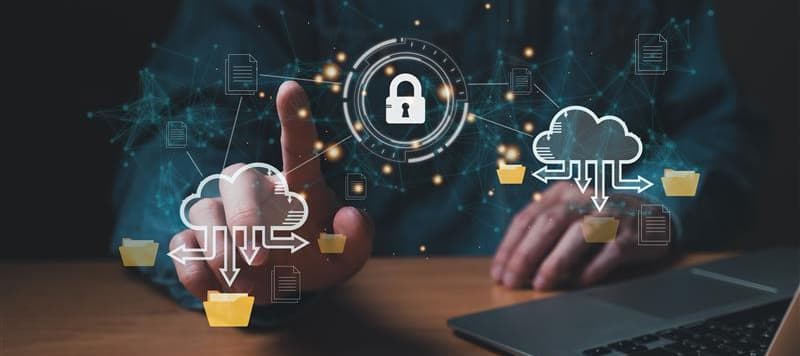NAS vs Server: What’s the difference between a file server and a NAS device?
Network-attached storage, or NAS, devices are smaller than the average server and have fewer features. Because of the difference in size, NAS devices are most often used by small and medium-sized businesses. Servers are much more powerful and allow for a lot more customization. But that extra power comes with an increase in size – many servers need ample space and are sometimes stored off-site.
Carbonite server backup solutions allow small and midsize businesses to protect the data stored in file servers and network-attached storage (NAS) devices from computer viruses, accidental deletion, natural disasters and anything else that might cause a company to lose critical information.
What is NAS?
NAS allows users to store and share files across a network and most importantly it comes in a small package that can fit in limited office space. Businesses store shared folders on NAS devices so team members, whether they’re in the office or remote, can access the same files. Perfect for collaborating, NAS devices free up disk space on personal devices and provide a central place for backing up important files.
Pros of NAS devices:
- Can be small in size, which lets businesses save space
- Protects against accidental deletion, disasters and cyber attacks
- Basic customization for sharing files and data
Cons of NAS devices:
- Typically don’t have keyboards or displays, which limits access
- Limited options for customizing and storage settings
- Can be overwhelmed when too many users try to access files
What is a server?
Put simply, a server is a computer that provides (or “serves up”) data to other smaller computers (laptops and desktops) in a network. Servers usually store large amounts of data that multiple people in a company use.
It’s important to remember NAS devices and servers are mostly used for the same thing – to store and share files across a network. Importantly though, A NAS allows for quick sharing of data, and it comes in a small package that can fit in limited office space.
Pros of using a server:
- An array of options for specialization and configuration
- Powerful processing and sharing capabilities
- Protects against accidental deletion, disasters and cyber attacks
Cons of using a server:
- Servers require a specialized kind of backup that’s different than your typical computer
- With greater power comes larger sizes, typically needing a dedicated storage option
- Requires specialized expertise to manage and service
Key similarities and differences between NAS and a file server
File servers and NAS devices each provide a great way to share files across devices on a network. But the typical file server offers more powerful hardware and greater functionality than a NAS device.
For example, a file server and NAS device both allow you to control who has access to specific files and folders. Administrators accomplish this by creating user groups and giving those groups access to the files they need to do their jobs. But a file server typically offers more configuration options in terms of security and more granular access controls than a NAS device.
In addition to file storage and sharing, NAS devices can also be used to automatically create locally stored backups of your business data. Just remember that for the ultimate in data protection, you also need to keep a copy of your critical information stored off site with a cloud backup solution like Carbonite backup.
Applications and Pricing
NAS devices can also be used to host applications. They provide many of the same services as an application server, but with more basic settings and less customization. They also offer fewer choices in terms of the applications that users can run. NAS device vendors require users to choose one of their own applications rather than choosing any third-party software.
With the difference in functionality between file servers and NAS devices comes a difference in cost. File servers offer greater processing power and as a result, they're more expensive. Server operating systems also drive up the price because they often require companies to purchase a server license, and in some cases, client access licenses, which give users and devices the right to access the server. In contrast, most NAS software comes with the NAS device and does not require licensing.
Interested in automatic cloud backup?
More resources:
Carbonite support: Backing Up a Network Attached Storage (NAS) Drive with Carbonite Safe Backup Pro
Carbonite blog: Cloud storage vs. cloud backup: What’s the difference?
Carbonite blog: Why Businesses Are Turning to Disaster Recovery as a Service
Carbonite blog: 5 Best Practices for Cloud Data Backup










